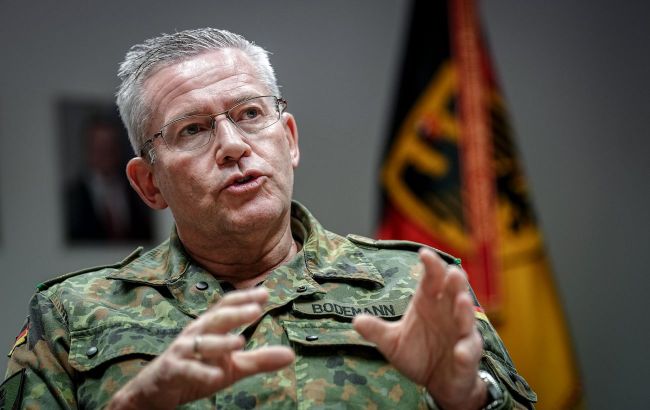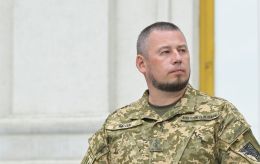Germany preparing first defense plan since Cold War
 German Lieutenant General Andre Bodemann (Photo: Getty Images)
German Lieutenant General Andre Bodemann (Photo: Getty Images)
Germany will develop a comprehensive defense plan for the first time since the Cold War. This is happening against the backdrop of Russia's invasion of Ukraine, reports German Lieutenant General Andre Bodemann.
According to him, the main points of the plan will focus on deterring enemy forces in the event of an invasion of German territory. In addition, responsible authorities must take into account new developments in military operations and prepare for sabotage of critical infrastructure, disinformation, and cyberattacks. It is also anticipated that a significant portion of the Bundeswehr will be needed to protect the eastern flank of NATO.
"Germany's operational plan is primarily focused on deterrence. We are doing something to prevent conflict or war," says Lieutenant General Bodemann.
He notes that the situation in Europe is different now than 30 years ago when Germany was a front-line state. Currently, his country is in the "rear area."
"So I don't expect tank battles on the North German plain, and hopefully, I don't expect landings of Russian paratroopers either. But our critical infrastructure, ports, bridges, energy companies are threatened by sabotage, possibly also special forces trying to disrupt these critical infrastructures," he emphasizes.
Bodemann believes that one of the main areas of defense should be cyberspace. This includes the spread of disinformation by the adversary and attempts to influence the residents of Germany and the government in this way.
"And the fourth part against which we are arming ourselves now is clearly the diversions of special forces, for example, irregular forces trying to sabotage something to hinder or prevent deployment," he says.
NATO prepares for possible escalations
Earlier, the head of NATO's Military Committee, Admiral Rob Bauer, stated that the alliance needed transformation, and the West had to prepare for an era in which anything could happen at any time, including the outbreak of war.
His remarks came against the backdrop of delays or restrictions on military aid to Ukraine from the United States and the European Union.
It should be noted that on January 16, Ukrainian President Volodymyr Zelenskyy warned that Western wavering in support of Kyiv and fears of escalation with Russia could prolong hostilities for years.
Earlier, Bild reported that NATO was planning extensive exercises in February involving about 90,000 military personnel. The scenario of the exercises was Russia's attack on Alliance territory.
On the eve, the Chairman of the NATO Military Committee, Admiral Rob Bauer, after yesterday's meeting of the Ukraine-NATO Council, which discussed, among other things, countering the Ukrainian Armed Forces to large-scale military aggression by the Russian Federation, called on the world community not to fall into pessimism.

